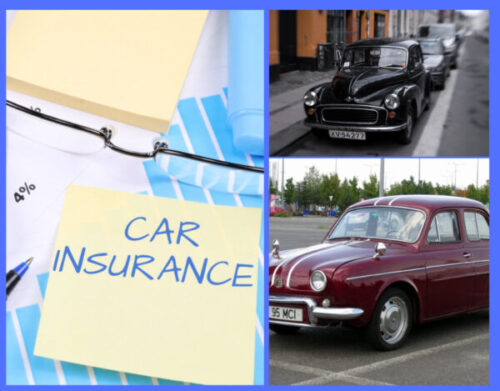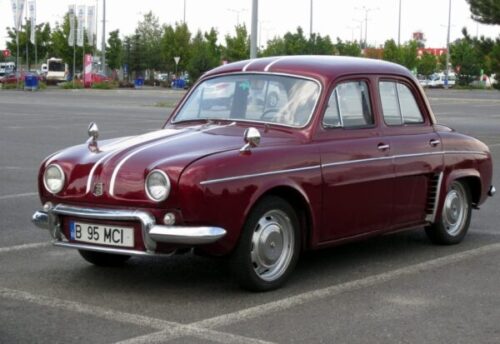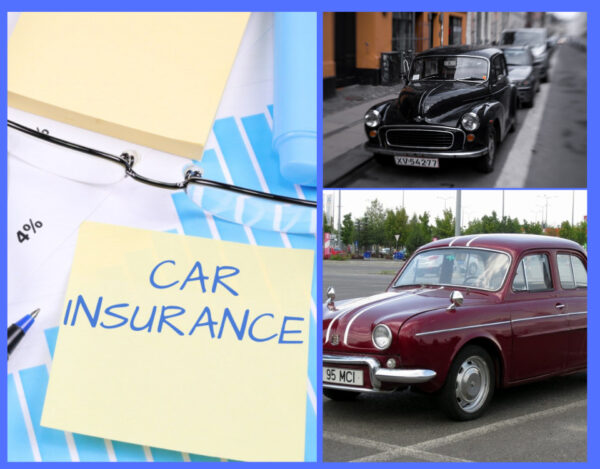Is it worth having comprehensive insurance on an old car?

Exploring the “The Pros and Cons of Online Car Insurance”
August 25, 2023
Does homeowners insurance increase with inflation and weather conditions
September 2, 2023Table of Contents
ToggleIs it worth having comprehensive insurance on an old car?
Is it worth having comprehensive insurance on an old car? When your vehicle is older, you might wonder if keeping comprehensive insurance is still a smart choice. The answer depends on your car’s value, your financial situation, and the risks you face. Comprehensive insurance covers damage from theft, vandalism, natural disasters, and other non-collision events — protection that can still be valuable even for an older car.
If your car’s market value is low, the cost of comprehensive coverage might be more than what you’d get in a payout after a claim. In that case, you may decide to drop it and save on premiums. However, if you rely heavily on your car and can’t easily afford unexpected repair or replacement costs, keeping comprehensive coverage could give you peace of mind.
In short, it’s worth doing the math — compare the yearly cost of coverage to your car’s current value. For some drivers, the added security is worth it, even for an old car.
Factors for Comprehensive Car Insurance:
Whether or not it is worth having comprehensive insurance on an old car depends on several factors, including the value of the car, your financial situation, and your driving habits.
Value of the car:
If the car is not worth much, then comprehensive insurance may not be worth the cost. This is because the insurance company will only pay out the value of the car, and if the cost of the insurance is more than the value of the car, then you would be better off paying for repairs out of pocket.
Your financial situation:
If you have a limited budget, then you may want to consider dropping comprehensive insurance and just getting liability insurance. Liability insurance will cover you for damage you cause to other people or property, but it will not cover damage to your car.
Your driving style:
If you drive safely and rarely get into accidents, you may not need comprehensive insurance. On the other hand, comprehensive insurance might be a smart option if you drive more recklessly to safeguard your money in the case of an accident.
Ultimately, the decision to purchase comprehensive insurance for an old vehicle rests with the person. To choose which option is best for you, weigh the benefits and drawbacks of each.
Here are some additional things to consider when making your decision:
- The age of the car: The older the car, the less it is worth, and the less likely it is that you will need comprehensive insurance.
- The condition of the car: If the car is in good condition, then you may be more likely to need comprehensive insurance to cover repairs in case of an accident.
- The cost of comprehensive insurance: The cost of comprehensive insurance will vary based on the car’s worth, your driving history, and the insurance provider you choose.
- Your deductible: The deductible is the amount of money you will have to pay out of pocket before the insurance company will cover any repairs. A higher deductible will lower your premiums, but you will have to pay more if you have an accident.

What is the best car insurance for older cars?
The best car insurance for older cars is the one that best meets your needs and budget. Here are a few things to consider when choosing car insurance for an older car:
- The value of the car: The older the car, the less it is worth, so you will need to choose an insurance policy that covers the car’s actual cash value (ACV).
- Your driving habits: A clean driving record can help you get lower premiums.
- Your claims history: If you have filed claims in the past, your rates may increase.
- The coverage you need: You must choose the type of insurance you need, such as liability, comprehensive, and collision.
After taking these into account, you may begin comparing rates from other insurance providers.
Some of the top providers of older vehicle insurance are listed below:
- Progressive: Geico:
- States Farm
- Farmers Insurance; and Allstate
Insurance brokers can also provide quotations, and they can assist you in comparing prices from other providers. Before you get auto insurance for an older vehicle, it’s crucial to browse around and compare estimates. By comparing prices from several providers and selecting the plan that best suits your needs, you can save money.
Are old cars hard to insure?
The answer is not always straightforward. Several variables, such as the automobile’s age, make model, and condition, will determine whether or not an old car is challenging to insure.
Older vehicles typically cost less to insure than newer vehicles due to their lower value. However, some older automobiles, such as vintage or sports cars, might be regarded as high-risk autos. Due to their higher risk of theft and collisions, these vehicles may cost extra to insure.
Ultimately, obtaining estimates from several insurance providers is the most effective approach to finding out how much it would cost to cover your old vehicle. Additionally, you can seek guidance from your insurance agent regarding certain vehicles and available coverage.

Here are some things to keep in mind when getting car insurance for an old car:
- The age of the car: The older the car, the less it is worth, so the less insurance will cost.
- The make and model of the car: Some cars are more expensive to insure than others, even if they are the same age.
- The condition of the car: A car in good condition is less likely to need repairs, so insurance may be less expensive.
- The mileage of the car: A car with high mileage is more likely to need repairs, so insurance may be more expensive.
- Your driving record: If you have a good driving record, you may be able to get lower rates.
- The coverage you need: The more coverage you need, the more expensive your insurance will be.
By understanding the above factors, you can get the best possible car insurance for your old car.
When should I stop getting comprehensive car insurance?
You should stop getting comprehensive car insurance when the cost of the insurance is more than the value of your car. This is typically the case when your car is more than 10 years old and has a low market value.
Here are some other factors to consider when deciding whether or not to keep comprehensive car insurance:
- Your financial situation: Comprehensive insurance might be a smart option if you don’t have the money to pay for repairs or a new automobile out of pocket.
- Your driving style: If you drive defensively and rarely cause accidents, you might not require comprehensive insurance.
- The coverage options available: Comprehensive insurance plans vary in how much coverage they provide. To select the policy that best suits your needs, make sure you are aware of the coverage alternatives you have.
If you are considering dropping comprehensive car insurance, it is important to talk to your insurance agent to get their advice. They can help you determine if comprehensive insurance is still right for you and can help you find a policy that meets your needs and budget.
Should I have collision insurance on a 10-year-old car?
The decision of whether or not to have collision insurance on a 10-year-old car depends on a few key factors:
The value of the car: If your car is not worth much, then collision insurance may not be worth the cost. This is because the insurance company will only pay out up to the value of the car, so if the car is totaled, you may not get enough money to replace it.
Your financial situation: If you cannot afford to pay for repairs or a new car out of pocket, then collision insurance may be a good idea. This is because it will cover the cost of repairs or a new car if your car is damaged or totaled.
Your driving habits: You may not need collision insurance if you drive safely and are not likely to be involved in an accident. Collision insurance, on the other hand, could be a useful method to financially protect yourself if you are a riskier driver.
You may want to think about the following in addition to these elements:
The vehicle’s age: The older the car, the less it is worth, so the less collision insurance will cost.
The mileage of the car: The higher the mileage, the more likely the car is to need repairs, so collision insurance may be a good idea.
The condition of the car: If the car is in good condition, it may be worth keeping collision insurance. However, if the car is in poor condition, it may not be worth the cost.
The coverage options available: Some collision insurance policies offer more coverage than others. Make sure you understand the coverage options available to you so you can choose the policy that best meets your needs.
The choice to purchase collision insurance for a car that is ten years old is ultimately a personal one. There is no right or wrong choice, and what is best for you will depend on your particular situation.
Should I have full coverage on a 15-year-old car?
Whether or not you should have full coverage on a 15-year-old car depends on several factors, including:
- The value of the car: If your car is not worth much, then full coverage may not be worth the cost. This is because the insurance company will only pay out up to the value of the car, so if the car is totaled, you may not get enough money to replace it.
- Your financial situation: If you cannot afford to pay for repairs or a new car out of pocket, then full coverage may be a good idea. This is because it will cover the cost of repairs or a new car if your car is damaged or totaled.
- Your driving habits: If you drive defensively and rarely cause accidents, you might not require full coverage. Full coverage, on the other hand, might be an excellent strategy to financially protect yourself if you drive more recklessly.
Here are some extra factors to think about before deciding:
- The age of the vehicle: An older vehicle has a lower market value, therefore comprehensive coverage will be less expensive.
- The mileage of the car: The higher the mileage, the more likely the car is to need repairs, so full coverage may be a good idea.
- The condition of the car: If the car is in good condition, it may be worth keeping full coverage. However, if the car is in poor condition, it may not be worth the cost.
- The coverage options available: Some full-coverage insurance policies offer more coverage than others. Make sure you understand the coverage options available to you so you can choose the policy that best meets your needs.
It’s crucial to speak with your insurance agent and seek their opinion if you’re thinking about reducing full coverage. They can assist you in determining whether or not full coverage is still appropriate for you and in locating a plan that fits both your demands and your budget.
The choice of having full coverage on a 15-year-old car is ultimately a personal one. There is no right or wrong choice, and what is best for you will depend on your particular situation.
Why is insurance high on old cars?
Insurance is high on old cars because they are more likely to be involved in accidents and have higher repair costs. Older cars also tend to have fewer safety features, which can make them more dangerous to drive.
Here are some of the reasons why insurance is high on old cars:
- Parts and labor costs: Older cars often use parts that are no longer made, which can make them more expensive to repair. Additionally, older cars may require more labor to repair, as mechanics may need to take more time to diagnose and fix the problems.
- Depreciation: The value of an old car depreciates rapidly, meaning that it is worth less each year. This means that the insurance company is less likely to recover its costs if the car is totaled in an accident.
- Safety features: More often than not, older vehicles lack modern safety features like airbags and anti-lock brakes. Due to this, they are riskier to drive and have a higher accident rate.
- Driver age: Older drivers are more likely to be involved in accidents than younger drivers. This is because they may have slower reflexes and may be less familiar with new driving technologies.
If you own an old car, you can take steps to reduce your insurance costs, such as:
- Maintaining your car properly: Keeping your car in good condition can help prevent accidents and reduce the severity of any damage that does occur.
- Installing safety features: Installing safety features can help to protect you in the event of an accident. Examples include airbags and anti-lock brakes.
- Improving your driving record: A good driving record can help you qualify for discounts on your insurance.
- Shopping around for quotes: Get quotes from multiple insurance companies to compare rates.

When is comprehensive insurance not worth it?
Comprehensive insurance is not worth it when the cost of the insurance is more than the value of the car. This is typically the case when your car is more than 10 years old and has a low market value.
Here are some other factors to consider when deciding whether or not to keep comprehensive insurance:
- Your financial situation: If you cannot afford to pay for repairs or a new car out of pocket, then comprehensive insurance may be a good idea.
- Your driving style: If you drive defensively and rarely cause accidents, you might not require comprehensive insurance. Comprehensive insurance, on the other hand, might be an excellent method to financially protect yourself if you drive more recklessly.
- The coverage options available: Some comprehensive insurance policies offer more coverage than others. Make sure you understand the coverage options available to you so you can choose the policy that best meets your needs.
If you are considering dropping comprehensive insurance, it is important to talk to your insurance agent to get their advice. They can help you determine if comprehensive insurance is still right for you and can help you find a policy that meets your needs and budget.
Here are some further suggestions for reducing the cost of auto insurance:
- Look about and evaluate prices provided by various insurance providers.
- Raise the deductible. This will result in a reduced premium, but if you file a claim, you will also be required to make a larger out-of-pocket payment.
- Take advantage of discounts. Many insurance companies offer discounts for things like good driving records, anti-theft devices, and multiple vehicles.
- Bundle your home and auto insurance. This can save you money on both policies.
By following these tips, you can save money on car insurance and still have the coverage you need.
What are examples of comprehensive insurance?
Here are some examples of comprehensive insurance:
- Theft: This covers the cost of repairs or replacement if your car is stolen.
- Vandalism: This covers the cost of repairs or replacement if your car is damaged by vandalism.
- Fire: This covers the cost of repairs or replacement if your car is damaged by fire.
- Hail: This covers the cost of repairs or replacement if your car is damaged by hail.
- Falling objects: This covers the cost of repairs/ replacement if your car is damaged by falling objects such as tree branches or rocks.
- Animals: This covers the cost of repairs or replacement if your car is damaged by animals, such as hitting a deer or being scratched by a cat.
- Windstorm: This covers the cost of repairs or replacement if your car is damaged by a windstorm, such as a tornado or hurricane.
- Water damage: This covers the cost of repairs or replacement if your car is damaged by water, such as flooding or a waterspout.
- Glass breakage: This covers the cost of repairs or replacement if your car’s windshield or other glass is broken.
Comprehensive insurance is an optional coverage, so you can choose whether or not to purchase it. However, it can be a valuable way to protect your car from damage that is not caused by a collision.




